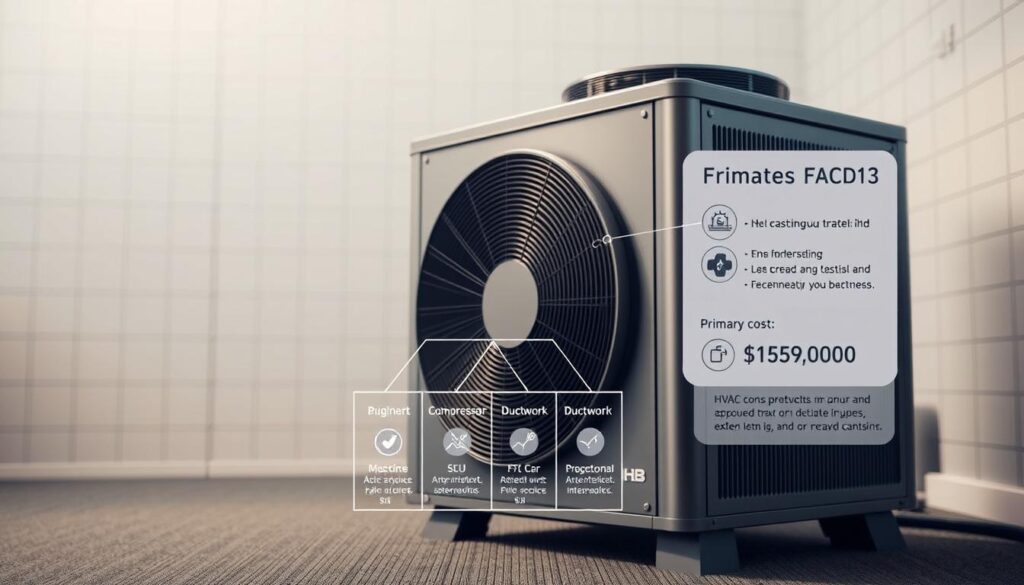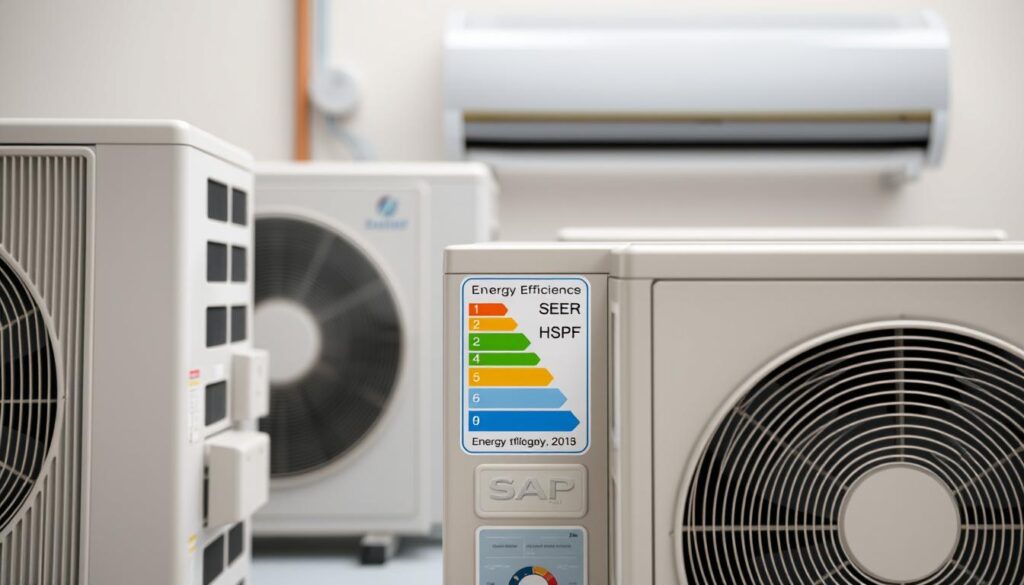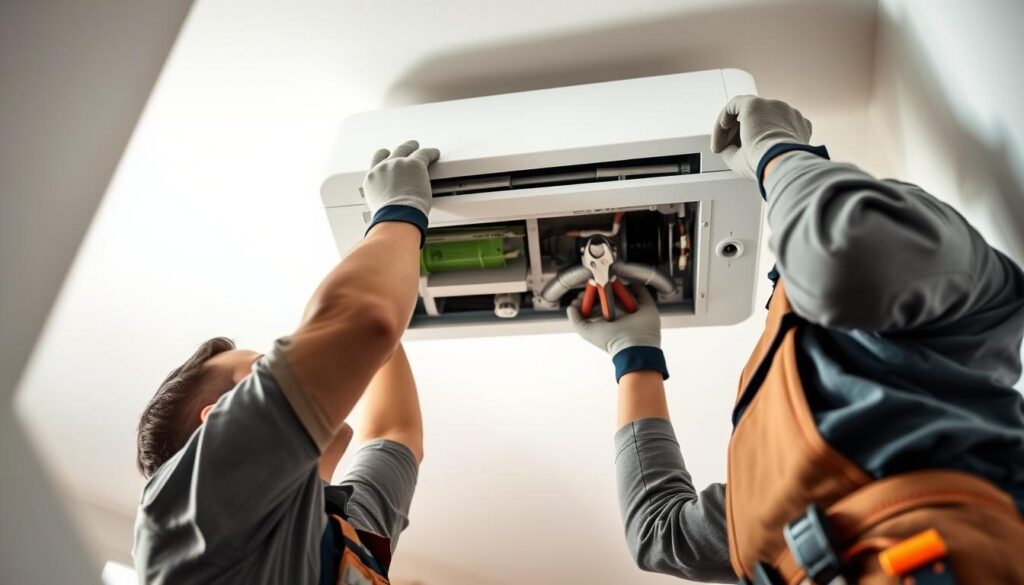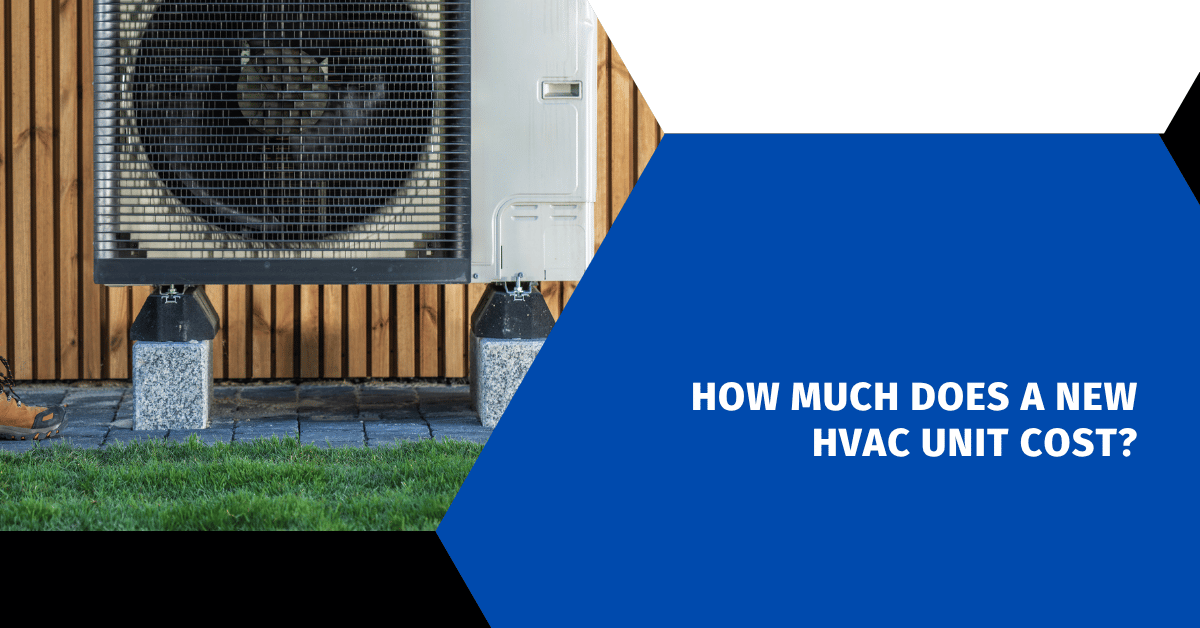Affiliate Disclosure
HVAC Guide Guys is a participant in the Amazon Services LLC Associates Program, an affiliate advertising program designed to provide a means for sites to earn advertising fees by advertising and linking to Amazon.
How Much Does a New HVAC Unit Cost? Are you curious about the cost of a new HVAC system? It can be a big expense for homeowners. Prices might surprise you.

Recent data from Angi shows the average cost for HVAC installation in the U.S. is between $5,000 and $12,500. The national average is about $7,500. Knowing the cost of a new HVAC unit is key for planning your budget.
Many things affect the total cost. These include your home’s size, the system’s complexity, and what equipment you need. Your location, energy efficiency needs, and the brand you choose also matter.
Key Takeaways
- Average HVAC installation costs range from $5,000 to $12,500
- Multiple factors impact overall system pricing
- Energy efficiency can affect long-term expenses
- Professional assessment is recommended for accurate pricing
- Financing options are available for large HVAC investments
Table of Contents
Understanding HVAC System Basics and Costs
Your home’s comfort relies on a network of heating, ventilation, and air conditioning (HVAC) systems. These systems control temperature, humidity, and air quality. They are like your home’s respiratory system. Knowing how HVAC systems work helps you choose the right heating and cooling system.
What is an HVAC System?
An HVAC system manages your home’s climate. It has several parts that work together:
- Heating units (furnaces or heat pumps)
- Cooling units (air conditioners)
- Ventilation systems
- Ductwork for air distribution
Average Cost Ranges for Installation
The cost to replace your home’s HVAC system varies. It depends on the system type and your home’s size. Here are some typical costs:
| System Type | Cost Range | Average Square Footage |
|---|---|---|
| Central Air Conditioning | $3,000 – $7,000 | 1,500-2,000 sq ft |
| Heat Pump System | $4,000 – $8,000 | 1,500-2,500 sq ft |
| Furnace Replacement | $2,500 – $6,000 | 1,000-2,000 sq ft |
Lifespan and Replacement Timing
Most HVAC systems last 10 to 15 years. Maintenance, usage, and environment affect their lifespan. If your system is 10 years old or not working well, it’s time to replace it.
Planning for a new HVAC system helps you budget. Regular maintenance and timely upgrades keep your system running well and save energy.
How Much Does a New HVAC Unit Cost?
In 2025, the cost of a new HVAC system varies a lot. Replacing your central air conditioning can cost between $5,000 and $11,000. This is for a standard installation.
Several factors affect the price of a new central air conditioner:
- Size of your home
- Type of HVAC system
- Energy efficiency ratings
- Local labor rates
- Complexity of installation
The size of your home is a big factor in the cost. A small home might need a less expensive unit. But, bigger homes need more powerful systems, which raises the cost.
Pro tip: Always get quotes from certified HVAC pros. This way, you can find the best deal. Some contractors offer discounts during certain seasons, which can lower your costs.
“Investing in the right HVAC system can save you money on energy bills in the long run.” – HVAC Industry Expert
For those watching their budget, expect to pay about $6,500 for a mid-range system. This includes standard installation. If you want a premium system with extra features, be ready to spend up to $11,000.
Explore Our HVAC Shop
Looking for top-rated HVAC tools, parts, and accessories? Visit our shop and find the perfect solution for your needs.
Visit the ShopTypes of HVAC Systems and Their Price Points
Choosing the right HVAC system is key to your home’s comfort and energy use. The cost of a new furnace and AC unit changes a lot based on the system type. Knowing your options helps you understand the costs better.
Central Air Conditioning Systems
Central air conditioning systems cool your whole home. Prices range from $1,900 to $5,500, based on your home’s size and needs. They offer:
- Whole-house cooling capability
- Integration with existing ductwork
- Consistent temperature control
Heat Pump Systems
Heat pumps do both heating and cooling. They cost between $4,500 to $8,000. They’re great because they:
- Use energy efficiently
- Manage temperature all year
- Save on operating costs
Furnace Options
Furnaces vary, with prices from $1,600 to $10,000. Your choice depends on fuel, efficiency, and home size. Here are the main types:
- Gas furnaces: Most common, often the cheapest
- Electric furnaces: Cheaper upfront, but cost more to run
- Oil furnaces: Less common, used in some areas
When picking an HVAC system, think about your local weather, home size, and energy goals. Each system has its own benefits that affect your comfort and bills.
Size and Home Square Footage Impact on Cost
When you’re looking to replace your home’s HVAC system, the size of your home matters a lot. Not every HVAC system is the same. The size of your living space affects the type and size of system you need.
Experts use a method called Manual J Load Calculation to figure out the right HVAC system size. They look at several important factors:
- Total square footage of your home
- Ceiling height
- Insulation quality
- Number of windows and doors
- Local climate conditions
Getting the HVAC system size wrong can cause big problems. A system that’s too small won’t keep your home comfortable. On the other hand, a system that’s too big wastes energy and raises your utility bills.
“Proper HVAC sizing is not just about square footage—it’s about creating comfort and efficiency.” – HVAC Industry Expert
Home HVAC system replacement costs vary with the square footage:
- 1,000 sq ft home: $3,000 – $5,000
- 1,500 sq ft home: $4,500 – $7,000
- 2,500 sq ft home: $6,000 – $10,000
Always talk to a professional HVAC technician for a precise assessment for your home.
Explore Our HVAC Shop
Looking for top-rated HVAC tools, parts, and accessories? Visit our shop and find the perfect solution for your needs.
Visit the ShopDuctwork Considerations and Expenses
The cost of replacing your home’s HVAC system can change a lot based on your ductwork. Ductwork is key for spreading heated or cooled air around your home. It’s a vital part of any HVAC setup.
Knowing about different ductwork options and costs can help you make better choices. Let’s look at the main points:
New Ductwork Installation Costs
When you’re getting a new HVAC system, check your ductwork first. Ductwork usually costs about $15 per foot. The total cost for installation can go up to $5,000. Costs can vary based on:
- Home size
- Duct material
- How easy it is to install
- Local labor prices
Ductwork Repair and Modification
Not every situation needs new ductwork. Sometimes, fixing or tweaking what you have can make your system work better without the full cost. HVAC experts can look at your ductwork and suggest the best, most affordable fix.
Ductless System Options
If your home’s ductwork is tricky, ductless mini-split systems might be a good choice. They cost more at first but offer precise heating and cooling with less disruption.
Pro tip: Always get multiple quotes and think about your home’s specific needs when looking at ductwork options for your HVAC installation.
Energy Efficiency Ratings and Cost Implications

When looking at the cost of a new heating and cooling system, knowing about energy efficiency is key. The Seasonal Energy Efficiency Ratio (SEER) shows how well your system turns electricity into cooling power.
The cost of upgrading your home’s HVAC system can change a lot based on its efficiency rating. Systems with higher SEER ratings usually mean:
- Lower monthly energy bills
- Less harm to the environment
- Possible tax credits and rebates
- Long-term savings
Energy-efficient systems might cost more at first, but they save you a lot of money over time. Most modern HVAC systems have SEER ratings from 13 to 21. Higher numbers mean better performance.
“Investing in an energy-efficient HVAC system is like putting money back in your pocket every month.” – Energy Efficiency Expert
When figuring out the price of a new heating and cooling system, think about these efficiency points:
- Compare the initial cost
- Guess how much you’ll save on energy
- Look for rebates from the manufacturer
- Figure out the long-term savings
Homeowners can usually get back the extra cost of more efficient systems in 5-10 years by saving on energy.
Explore Our HVAC Shop
Looking for top-rated HVAC tools, parts, and accessories? Visit our shop and find the perfect solution for your needs.
Visit the ShopBrand Selection and Price Differences
Choosing the right HVAC brand is key to your costs. Knowing the differences in brand tiers helps you make a smart choice.
Your HVAC system is a big investment. The brand you pick affects its performance, reliability, and future costs.
Premium HVAC Brands
Top brands like Carrier, Trane, and Lennox offer high quality:
- Advanced energy efficiency
- Extended warranties (10-12 years)
- Superior noise reduction
- Higher costs, $6,000-$12,000
Mid-Range Options
Brands like Rheem and Goodman offer good value:
- Prices between $4,000-$7,000
- Reliable performance
- Standard warranties
- Good for those watching their budget
Budget-Friendly Choices
Brands like Armstrong and York are affordable:
- Lower costs, $3,000-$5,000
- Basic features
- Shorter warranties
- May cost more in the long run
“Your brand selection should balance immediate costs with long-term performance and reliability.”
When looking at new HVAC costs, think about your needs, budget, and climate. Do your research and talk to HVAC experts for the best choice.
Additional Components and Add-ons
When you’re looking to upgrade your home’s HVAC system, think about the extra features you can add. These extras might cost more, but they can make your home more comfortable and efficient. They can also improve the air quality in your home.
Some important add-ons to consider for your HVAC system include:
- Smart Thermostats: These advanced devices allow precise temperature control and can reduce energy consumption
- Air Purification Systems: Improve indoor air quality by removing allergens and pollutants
- Humidity Control Devices: Manage moisture levels for optimal comfort
- Zoning Systems: Create customized temperature zones throughout your home
Adding these components can take your HVAC system to the next level. A UV lamp can kill harmful germs, and a carbon monoxide alarm keeps you safe. These upgrades usually cost between $500 and $2,500. This could increase the total cost of upgrading your home’s HVAC system to $9,500-$18,500.
When looking at these add-ons, think about what you need, your budget, and what you want for your home’s comfort in the long run. Some upgrades work right away, while others improve your air quality and energy use over time.
Pro Tip: Consult with an HVAC professional to determine which additional components will provide the most value for your specific home environment.
Explore Our HVAC Shop
Looking for top-rated HVAC tools, parts, and accessories? Visit our shop and find the perfect solution for your needs.
Visit the ShopInstallation Labor Costs and Considerations

When you’re looking to replace your HVAC system, knowing the labor costs is key. The cost of installation can change a lot based on several important factors. Most professionals charge between $75 to $250 per hour for their work.
The cost of your HVAC installation depends on a few things:
- Home size and layout
- Existing ductwork condition
- System complexity
- Local labor market rates
“Proper installation can make or break your HVAC system’s long-term performance and efficiency.”
Experienced HVAC pros usually price their work in a few ways:
- Per square foot pricing
- Hourly rates
- Flat project fees
The cost to replace your HVAC system at home can be between $4,000 to $10,000. Labor costs make up 50-70% of this total. Hiring skilled, licensed technicians is important for your system’s performance and can save you money in the long run.
Pro tip: Always ask for detailed quotes from different certified HVAC contractors. This way, you can compare labor costs and what services are included.
Financing Options for HVAC Replacement
Replacing your home’s heating and cooling system is a big deal. Knowing about financing can help you afford a new system without financial strain.
There are several ways to make your HVAC replacement more budget-friendly:
Home Equity Loans
Home equity loans let you use your home’s value. They usually offer:
- Lower interest rates than personal loans
- Potential tax deductions on interest
- Longer to pay back
Personal Loans
If home equity isn’t an option, personal loans can help. They have:
- Quick approval
- No need for home collateral
- Fixed interest rates
Manufacturer Financing
Many HVAC makers have special financing deals. These deals often include:
- Zero-interest promotions for certain buyers
- Flexible payment plans
- Direct deals with the equipment maker
Before picking a financing option, look at interest rates, terms, and your finances. This will help you choose the best for your HVAC replacement costs.
Explore Our HVAC Shop
Looking for top-rated HVAC tools, parts, and accessories? Visit our shop and find the perfect solution for your needs.
Visit the ShopWays to Save on HVAC Installation
Getting a new HVAC unit doesn’t have to be expensive. Smart homeowners can save a lot by using smart strategies. This way, you can get a high-quality central air conditioner without breaking the bank.
Figuring out the cost of a new HVAC unit can be tough. But, there are proven ways to cut down your expenses:
- Get multiple quotes from reputable contractors
- Schedule installation during off-peak seasons
- Look for energy-efficient models
- Explore available rebates and tax credits
When it comes to saving money, timing is key. Contractors often give discounts during winter and early spring. This is because there’s less demand then.
| Saving Strategy | Potential Savings |
|---|---|
| Off-season Installation | 10-20% on labor costs |
| Energy-Efficient Models | Up to $500 in tax credits |
| Multiple Quotes Comparison | 5-15% total project savings |
Choosing energy-efficient HVAC systems can save you money upfront and in the long run. Look for units with high SEER ratings to get the most value.
Think about maintenance plans to avoid expensive repairs and make your system last longer. Some contractors offer special deals that can save you even more on your HVAC installation.
Conclusion
Getting a new HVAC system needs careful planning and thinking about money. The cost to upgrade your home’s HVAC can be between $5,000 and $12,500. This depends on things like the type of system, your home’s size, and how hard it is to install.
When you’re looking at new HVAC, think about both the cost now and how it will save money later. Systems that save energy might cost more at first but can lower your bills every month. Getting it installed by a pro makes sure it works right and can avoid expensive fixes later.
Plan your budget for your HVAC upgrade by looking at different systems and brands. Think about energy ratings, system size, and rebates to get the most value. Making smart choices about your HVAC can balance comfort, performance, and saving money.
Remember, a good HVAC system is more than a cost—it’s an investment in your home’s comfort and value. Take time to figure out what you need, talk to HVAC experts, and choose a system that will keep your home comfortable for years.

